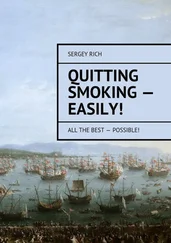Apart from Jacob, it was felt that this was just, reasonable, and full of insight.
“How about the animals?” said Edmund. “Don’t forget that we have to have two of each kind, male and female.”
“Animals are fine,” said Francis, “I like animals. They are interesting, spontaneous, and sincere.”
“Animals and also children,” said Rudyard. “We will have a new education for them, the education of the Ark. They will not be taught the skills which crush their natures and prepare them to be desperate citizens of the middle class. We will teach them every kind of virtue and vice, and by this true education, they will be made truly free. For in what sense can a human being be said to be free, if he is not possessed by the knowledge of every possibility, famous and infamous?”
“You want the children to be just like you,” said Laura.
“I suppose you like the world as it is?” said Rudyard passionately. “Are you happy? Is anyone happy?”
Laura had no answer, but felt that Rudyard was wrong.
“As for me,” said Ferdinand, “I spit on this life.”
This declaration was acclaimed.
“This life,” added Ferdinand, “can go and take a flying La Rochefoucauld for itself.”
The addition was also acclaimed.
“Say what you will,” said Jacob, when the applause had ended, “there is something that must be said for this life. This idea of the Ark is only an idea, and yet we all hold back. There is no flood of rejections and renunciations. We are all too much in love with many things, whether we have them or not.”
“You don’t like Arks,” said Rudyard, knowing that a crisis had been reached, since Jacob was turning away.
“I like Arks well enough,” said Jacob, “although I have never been on one, and can’t be too sure. But I like many other things, even if they are not as good as they might be.”
“No,” said Rudyard, feeling that the emotion was slipping away and that the circle was becoming bored with the idea of the Ark.
“The kingdom of heaven is within us,” said Jacob, “but also the kingdom of hell.”
“What kingdom?” said Rudyard. “Do you know any kings? Do you know anyone who has found any kingdom within himself? I thought once that I had, but I was wrong.”
It was too late. Jacob smiled patiently and in sympathy.
“This is where we are,” said Jacob, “and this is where we are going to stay, waiting in hope and fear for what comes next in this life.”
“As for me, I am going home,” said Ferdinand, and all the visitors arose to depart, for they had had enough of the idea of the Ark.
EIGHT: “PRACTICALLY EVERYONE DOES WHAT HE WANTS TO DO IF HE CAN”
During a period when Rudyard was absent on a long visit, a celebrated cause and scandal broke out.
The scandal began with Marcus Gross. During the difficult winter of the year, he had paid much attention to a plump and pretty girl named Irene. She was active, efficient, interested in many things, especially radical politics. Marcus met her at meetings of the radical party to which both belonged, and he courted her not only because she was pretty, but also because he had already heard about her from a friend of his, Algernon Nathan. Algernon was a certain well-known type, the perfect student who gets the highest grades in all his classes. He was precise, thin-lipped, tormented by pride, and as humorless as a public monument. He earned a handsome salary and he felt unable to understand why he was not the perfect success in the great world that he had been in school. He had succeeded very quickly with Irene. His parents owned a store and it was simple for him to bring Irene home, either in the afternoon or in the early evening, when his parents were at the store. When his parents came home unexpectedly one day, Algernon left his bedroom, attired himself in his dressing gown, and halted his parents in the hallway, asking them to depart from the house because he was having sexual intercourse. The adoration, and awe of his parents were such that they left the house immediately and hurriedly, supposing that if Algernon, the perfect student, thought that this was right, it must indeed be right.
Algernon provided Marcus with a comprehensive description of his sessions with Irene, who was, he affirmed, “passionate to a satisfactory extent,” but with whom he did not like to be seen by his friends. Irene, however, wanted Algernon to take her out and to visit his friends with him. And Algernon found that what he really wanted from Irene, she did not really like. What he really wanted to do when he made love was to whip Irene. He had not gone so far as to propose this exercise to her, but had restricted himself to squeezing her and pinching her while he regarded the pain upon her face. This had been endured by Irene only upon occasion, when she was eager to please him. Her attitude was a blow to Algernon’s pride, for he felt that if a girl truly loved him, she ought to want whatever he wanted.
After a time, Algernon decided that it would be more sensible and more efficient to pay for such satisfactions and not to become involved with a girl whom he had to take out and be seen with by his friends. He had made the proper inquiries and found that there were establishments where what he wanted was available, and he had gone to them with system, twice a week, taking with him a book to study on the subway, a book which extended his knowledge about such subjects as some period in history, relativity physics, or mathematical logic.
“Often, however,” he explained to Marcus who admired him very much because he was a conventional success, “I merely study the faces in the subway, wonder what lives have produced such faces, and write sonnets about them when I get home.”
Marcus blazed with desire when he heard Algernon’s somewhat off-hand account of Irene. His own desires were orthodox and straight-forward, and such a girl was just what he longed for. He paid expensive court to Irene and took her to theatres, to the opera and to the ballet, night after night, being impatient. At the conclusion of two weeks, he proposed to Irene that she go to Atlantic City with him for the week-end. She refused flatly, and when he asked if she thought she might feel differently after six months, she said she was sure she would not, she was sorry, but to be perfectly frank, she found him unattractive. Marcus in anger replied that she had a capitalist and Hollywood conception of what was handsome, for he had been told by some girls that he was extremely attractive. He did not add that it was a colored girl to whom he had just paid ten dollars who had said: “Boy, are you handsome!”
No sooner had Marcus stopped seeing Irene than she began to go out with Ferdinand to whom she had been introduced by Marcus. The truth was that Marcus suspected Ferdinand of interviewing and seeking out Irene before his rejected week-end proposal.
Marcus was hurt, as if he had been betrayed. He saw no reason for Ferdinand’s being successful where he had failed, and he felt also that such a one as Ferdinand, precious and finicky, had been unfaithful to himself in going with a girl like Irene. He protested long, as if obsessed, to Edmund and Jacob. Both of them, perverted by Marcus’ stolid foolishness, provoked Marcus all the more.
Ferdinand hated Algernon and refused to acknowledge his existence when they passed on the street. The year before, Algernon’s father had hanged himself because of losses in the stock market, and the circle had had a merry time about this event, for none of them liked Algernon, whom they had known as a student. They had discovered that when they asked most acquaintances if they had heard about Algernon’s father, most of them said:
“Yes, he hanged himself!” and broke out laughing. The laughter was directed at Algernon as a prig, and not at the father, a small, quiet, extremely nervous man whom no one knew very well.
Читать дальше












